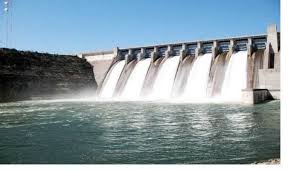Ibrahim Assalia pays a visit to Gaza each year to see his parents. But this year, the visit was urgent: His father was diagnosed with blood cancer.
So Assalia, his wife and their six children – all British nationals – left their home in North London to help their ailing family member receive treatment in Jordan.
But Israel’s relentless bombing of the Gaza Strip following Hamas’s attack on Israeli soil on October 7 made it impossible for Assalia’s father to be able to leave the blockaded enclave.
He died last week as a result of receiving no medical care.
“He passed away on the 22nd of this month – during war,” Assalia told Al Jazeera, speaking by phone from the northern Gaza city of Jabalia.
When he went to the hospital to figure out how to bury his father, he was told to find any makeshift graveyard he could and put his body in, even if other bodies were already there.
Hospitals in the Gaza Strip have been functioning as overflowing morgues, as Israel’s near month-long bombardment has killed more than 9000 Palestinians.
“That’s how they bury the dead here,” said Assalia. “Like five, six, 10 in one grave.”
Assalia, a lecturer of media studies back in London, and a former English news presenter and editor for Palestine TV with the Palestinian Authority from 1998 to 2006, is trying to get his family out of Gaza.
They are among hundreds of foreign nationals and critically wounded Palestinians permitted to leave the strip since Gaza’s Rafah border crossing with Egypt opened on Wednesday for the first time since the war broke out.
Assalia received a phone call from the British Foreign Office late on Thursday, letting them know that their names were on a list of people approved to evacuate Gaza.
But Israeli shelling continues to deluge the route between the Rafah border and central Jabalia where he and his family fled to, after bombing intensified near their family home on the outskirts of the city.
“No taxi can take us there, simply because Israeli tanks are positioned in the area,” Assalia said.
“We heard that they shelled some civilian cars with passengers,” he added, explaining that he called six taxi companies on Friday morning who informed him of the shelling and told him it was too dangerous to make the hour-long journey along Gaza’s main Salah al-Din highway.
On Friday, Israel acknowledged that it had bombed a convoy of ambulances heading from Gaza City to the south, killing 15 people, according to Palestinian officials.
Trapped, the Assalia family shelters in one room with two other families who are also British nationals, all of them surviving on one meal a day of canned foods.
And their situation is only getting more desperate.
Assalia injured his finger after an Israeli air strike shattered a window near where he stood. His wife is running out of her epilepsy medication. And his 22-year-old daughter, a medical student, has been experiencing irritation on her skin she suspects could be due to Israel’s alleged use of white phosphorus munitions.
Human Rights Watch has accused Israel of using the chemical weapon on civilians in Gaza, which many experts say would be a violation of international law.
Source Aljazeera









